|
#2
17th November 2014, 10:43 AM
| |||
| |||
| Re: CBSE Class 11 CSE Syllabus
Well there is no changes are made in CSE Syllabus of CBSE Class 11 for 2014 , it is same as of previous year . Here I am providing the SE Syllabus of CBSE Class 11 which you are looking for. UNIT 1: COMPUTER FUNDAMENTALS Evolution of computers; Basics of computer system and its operation: Functional Components and their inter-connections; concept of Booting. Software Concepts: Types of Software - System Software, Utility Software and Application Software; System Software: Operating System, Compiler, Interpreter and Assembler; Operating System: Need for operating system, Functions of Operating System (Processor Management, Memory Management, File Management and Device Management), Types of operating system - Class XI (Theory) Duration: 3 hours Total Marks: 70 Unit No. Unit Name Periods Marks Interactive (GUI based), Real Time and Distributed; Commonly used operating systems: UNIX, LINUX, Windows, Solaris, BOSS (Bharat Operating System Solutions); Mobile OS - Android, Symbian. Illustration and practice of the following tasks using any one of the above Operating Systems: • Opening/Closing Windows • Creating/Moving/Deleting Files/Folders • Renaming Files/Folders • Switching between Tasks Utility Software: Anti Virus, File Management tools, Compression tools and Disk Management tools (Disk Cleanup, Disk Defragmenter, Backup) Application software: Office Tools - Word Processor, Presentation Tool, Spreadsheet Package, Database Management System; Domain specific tools - School Management System, Inventory Management System, Payroll System, Financial Accounting, Hotel Management, Reservation System and Weather Forecasting System Number System: Binary, Octal, Decimal, Hexadecimal and conversion amongst these number systems. Internal Storage encoding of Characters: ASCII, ISCII (Indian scripts Standard Code for Information Interchange), and UNICODE (for multilingual computing) Microprocessor: Basic concepts, Clock speed (MHz, GHz), 16 bit, 32 bit, 64 bit processors, 128 bit processors; Types - CISC Processores (Complex Instruction set computing), RISC Processors (Reduced Instruction set computing), and EPIC (Explicitly parallel Instruction computing). Memory Concepts: Units: Byte, Kilo Byte, Mega Byte, Giga Byte, Tera Byte, Peta Byte, Exa Byte, Zetta Byte, Yotta Byte Primary Memory: Cache, RAM, ROM Secondary Memory: Fixed and Removable Storage - Hard Disk Drive, CD/DVD Drive, Pen Drive, Blue Ray Disk Input Output Ports/Connections: Serial, Parallel and Universal Serial Bus, PS-2 port, Infrared port, Bluetooth, Firewire. 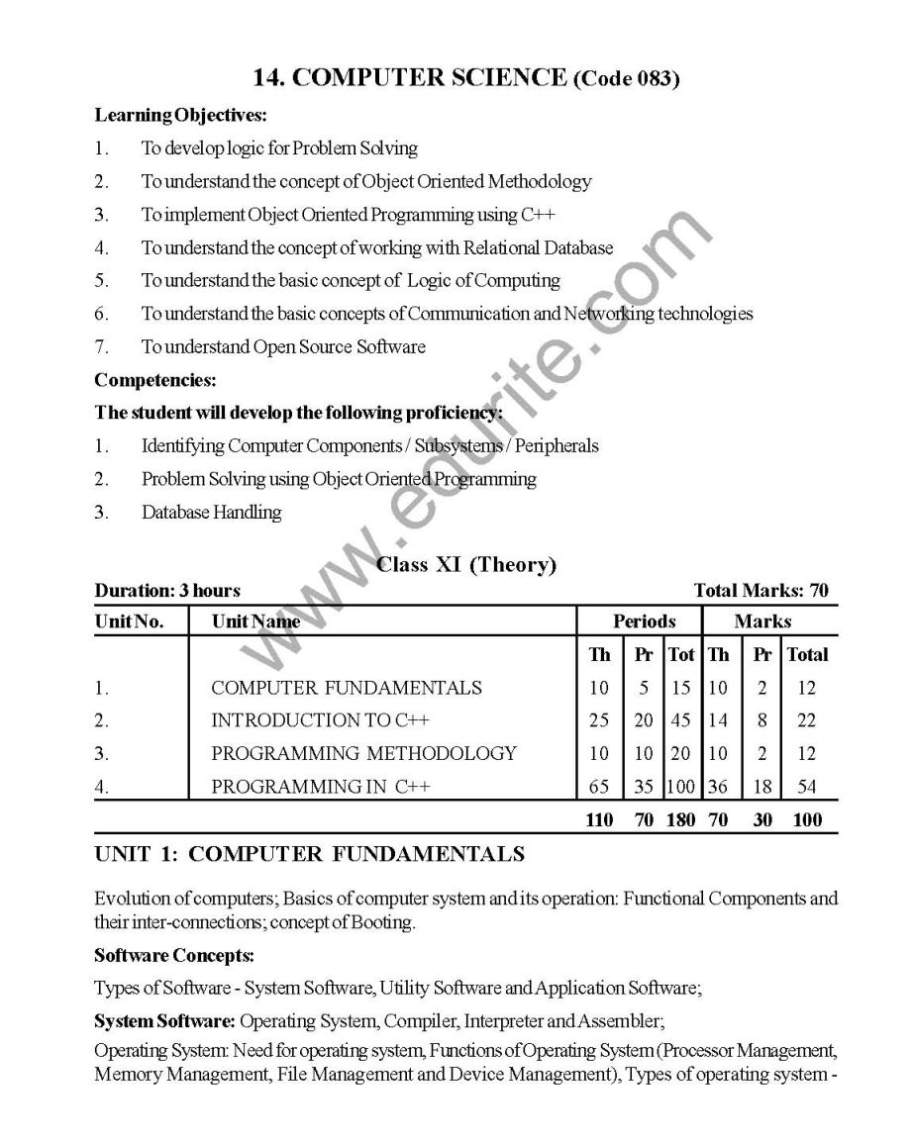 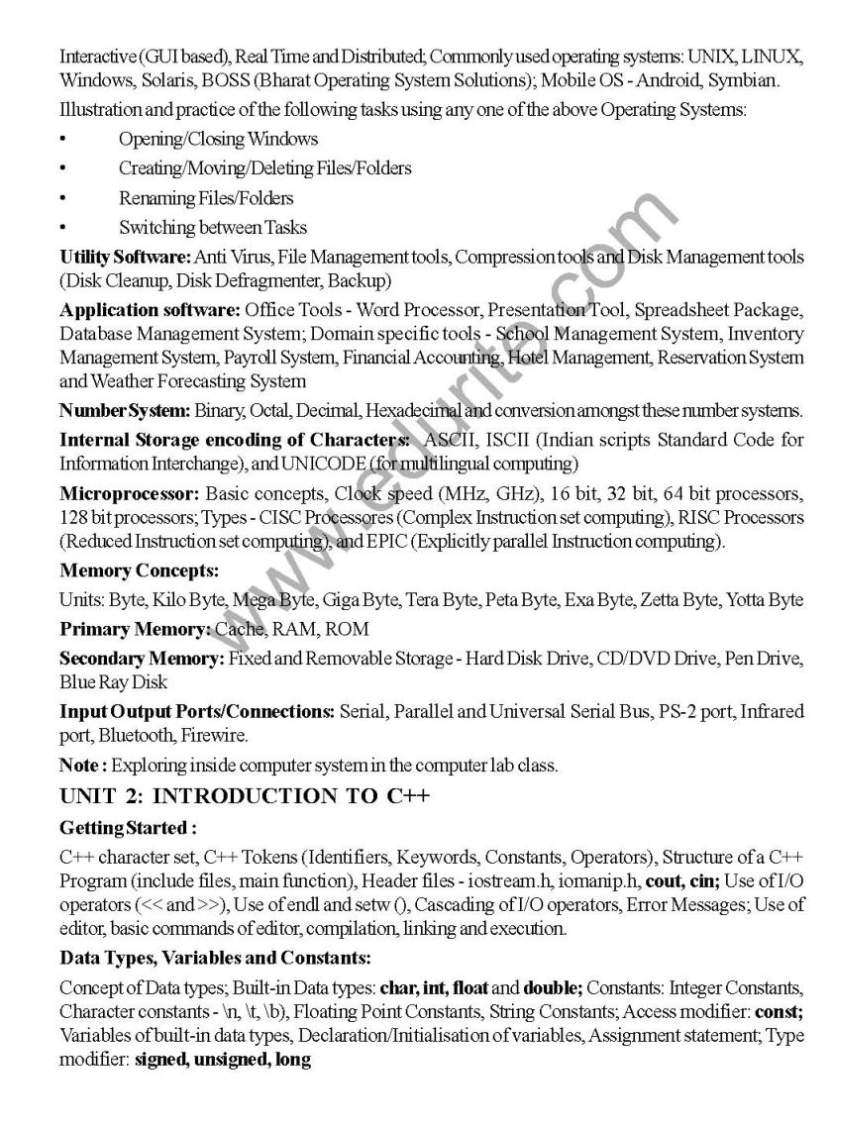 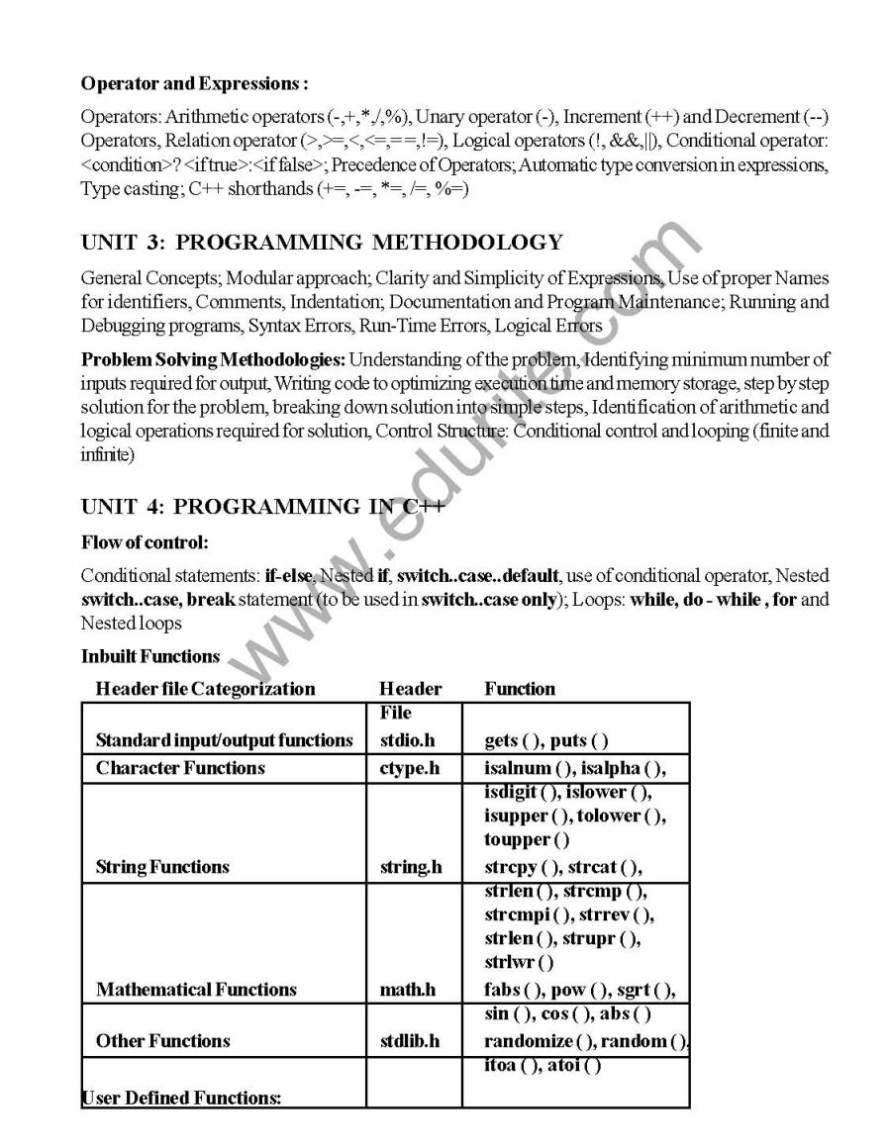 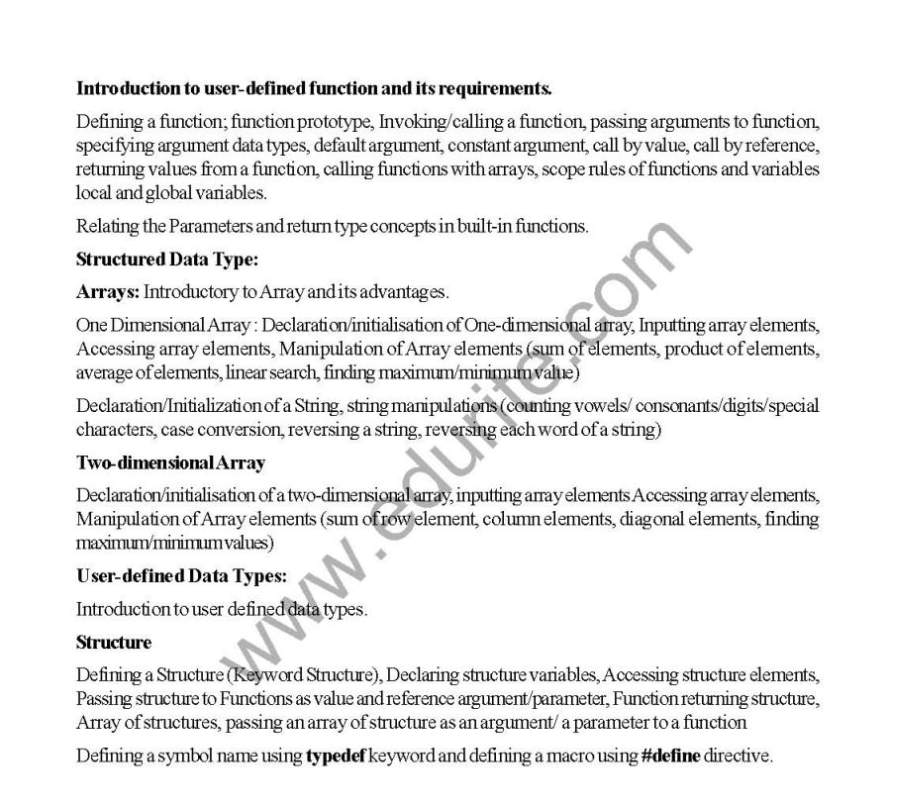 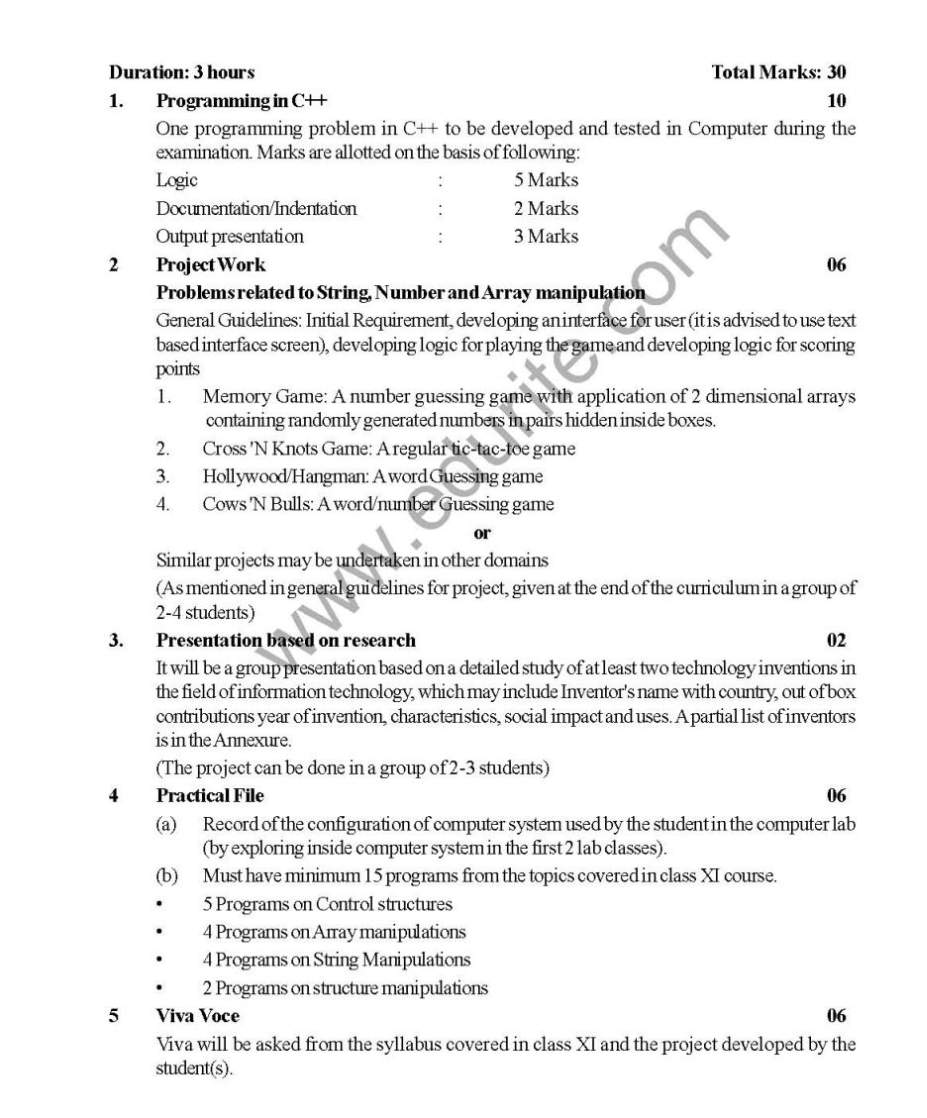 |




